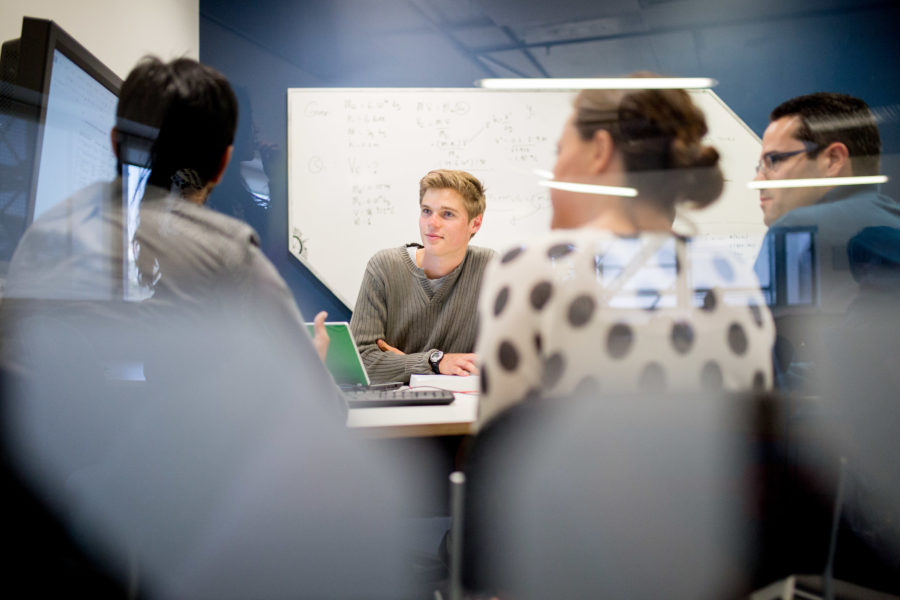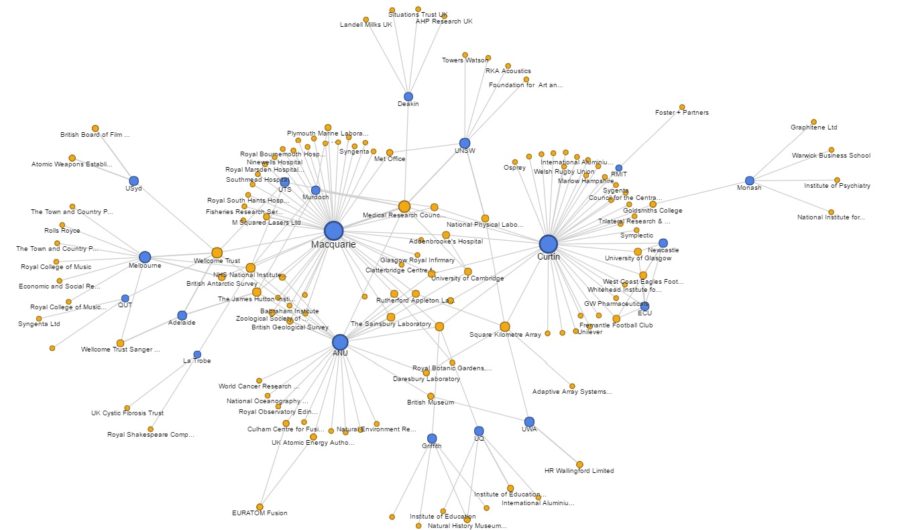18th August 2017 Canberra, Australia
UK-Australia Research Collaboration: untangling the web

It’s rare for an undergraduate student like me to get the opportunity to use their studies to make a genuine impact so early on in their career.
As part of my Science Policy degree at the Australian National University, over the last 6 months I’ve been interning at the British High Commission, Canberra, where I’ve been writing a paper about UK-Australian research collaboration.
I’ve been mapping research collaboration between British and Australian businesses and universities. We knew there was a lot of collaboration happening; there are more than 500 agreements between British and Australian universities, and over 6,000 joint research publications produced each year. But who was doing all this work? What were the main challenges? And what impacts could this research collaboration have?

I contacted Deputy Vice-Chancellors, Deans and other academics from almost every Australian and British university (it’s a long process… there’s hundreds of them!) to find out about the awesome research their university was doing.
I then generated case studies about some of the main collaborations – which were not only used for my report, but to support the broader work of the UK Science and Innovation Network in Australia. I also produced a map of research collaborations, which resembled something in between a giant spider web and a large plate of spaghetti.

My research uncovered some really varied and exciting collaborations. One of my favourites was with Welsh Rugby Union, whose research with Curtin University analysed the impact heavy collisions in tackles had upon the performance of international rugby players. La Trobe University worked with the UK National Institute for Health Research to develop ways staff culture at accommodation facilities can better support those with intellectual disabilities. Or the UK Atomic Energy Authority, who is working with the Australian National University in taking the next steps to developing plasma fusion as a commercial energy source.
From my research, it is clear that Australian academics see enormous value in collaborating with UK industry; creating globally impactful research that is fast tracked to international audiences. This is particularly important for many Australian universities given the country’s geographical isolation from the rest of the world.
Many universities were also quick to point out that the global research reputation of the UK, and its larger pool of people and research infrastructure meant that smaller fields that didn’t receive much attention in Australia could receive access to higher funding and better data, as well as increase the reputation of Australian research.
The most exciting part about my research was its incredible relevance and potential impact. When done right, international research collaboration yields benefits that no single nation can achieve alone; it also helps maintain the excellence of our research base. By providing recommendations to support UK-Australia collaboration – whether through facilitating business and academic exchanges or helping universities formalise research agreements – my work will contribute to the economic prosperity and growth of both nations.
My time at the High Commission has been such an incredible opportunity to utilise the skills and knowledge I’ve learnt throughout my degree to make a genuine impact, as well as gain some awesome experiences that I’ll take with me throughout the rest of my career.
